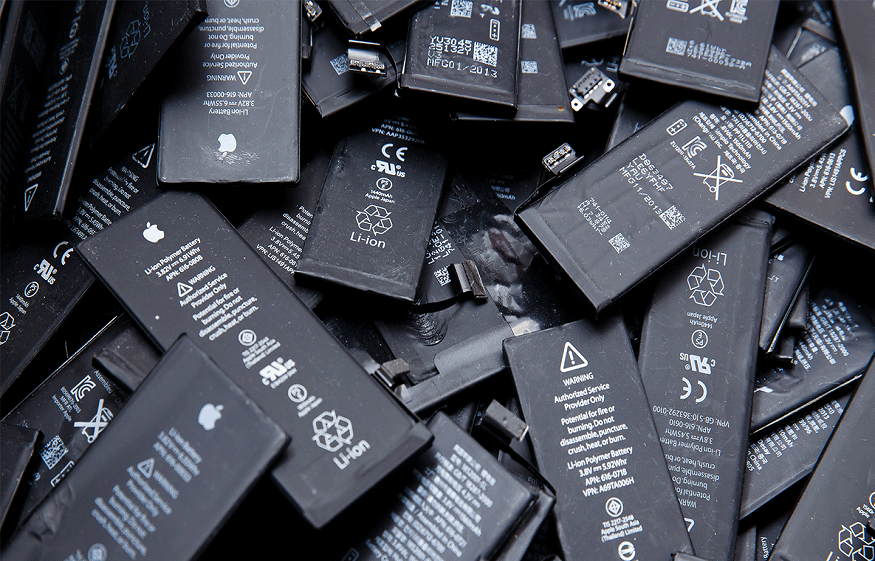The world has just recovered from the global epidemic. We all are witnesses to the causes of the Covid-19 epidemic. It has caused the fastest and most significant decline in international flow, such as international travel, trade, foreign direct investment, and international deals. These figures imply an extensive rollback of the recent gains of globalization. However, they do not necessarily signal the total collapse of the integration of the international market. Some industries have shown sustainable returns to the global market, and some organizations have entirely vanished from the globe. However, lithium-ion battery recycling has shown high growth over the past few years.
Here, the question arises, “How Are Lithium Battery recycling Companies Succeeding Despite COVID-19?”
So, here in this blog, we will discuss the processes followed by lithium-ion battery companies and various factors behind the sudden growth of lithium battery companies.
What Processes Do Lithium Battery Companies Follow?
Mechanical Process
In the mechanical process, the batteries are initially disassembled from their parent source and treated by a mechanical process. In the mechanical process, black mass, copper, plastics, and aluminum are recovered from the source. The black mass obtained from the battery is collected and sent for the hydrometallurgical process. Then, the obtained materials are collected and separated by some other process.
Hydrometallurgical Processing
Hydrometallurgical processes consist of the chemical precipitation in which scarce minerals are extracted from the black mass and sent to the producers for reuse in manufacturing the new batteries. The engineers are still working on the new method of extraction of higher purity and more yield for that material.
Why do we need lithium-ion battery recycling companies?
People get overwhelmed by the positive impacts of the lithium-ion battery as it probably reduces the amount of CO2 in the environment. Electric cars were proven to be zero-emission vehicles and will reduce pollution in urban areas. Still, the major concern with these vehicles is their batteries. Lithium-ion batteries have a lifespan of 7-8 years; after that, they might be disposed of directly into the environment. The several components of the lithium-ion battery are copper, cobalt, black mass, iron, and Nickel which are not considered safe for the environment and human beings.
In such a situation, lithium-ion battery recycling came into the game. Companies like BatX Energies provide lithium-ion battery recycling services. These organizations provide seconds of life to the batteries, which makes the battery cost-efficient and eco-friendly. After completing their life span, these batteries are no more suitable for primary use, but some potential is still available in these batteries. In such cases, these batteries are used for secondary purposes.
Why Are Lithium-Ion Batteries Gaining Popularity During the COVID-19 Era?
Sustainable Option
The rise in demand for lithium batteries also increases the mining, processing, turning of the raw materials into batteries, and then after 7-8 years, turning the same into materialistic waste. The Lithium-ion battery consists of non-renewable precious metals such as Nickel, lithium, cobalt, and manganese; these elements take millions of years to get recycled. Hence, recycling or second use of the lithium battery will save these materials and reduce environmental pollution.
Safeguards the Food Chain
Although we mine the raw material of lithium batteries from the ground, they are no safer for the environment and humans after processing. If somehow they entered the human food chain they might cause health disorders. So, these elements are used differently in the recycling process and cannot be disposed of directly into the earth.
Fulfills the Demand for Lithium Batteries
Elements used in lithium batteries are available in nature in limited quantities so it is very difficult to fulfill the needs of every person from natural resources. The excessive mining of these materials can reduce the quantity of the environment. Lithium-ion battery recycling might be a proven technique to fulfill the world’s demands.
Conclusion
The outbreak of the covid-19 has hampered most of the business, but the Lithium battery companies manage to face such a pandemic due to the increasing need and demands of the public for EVs. Lithium battery companies have shown high productivity and growth in past years. Among all new state-of-the-art storage technologies, the Lithium battery allows the highest energy level. These batteries are also enriched with a temperature operating window or fast charging. Apart from this, li-ion batteries show a different potential like a long lifetime, low self-discharge, and high cycling performance with thousands of charging and discharging cycles.
BatX is one of the prominent names in the lithium-ion battery recycling industry. They are highly committed to providing the best services to their customers. They have highly experienced and qualified professionals who handle the separation work to keep the damage ratio minimum.

